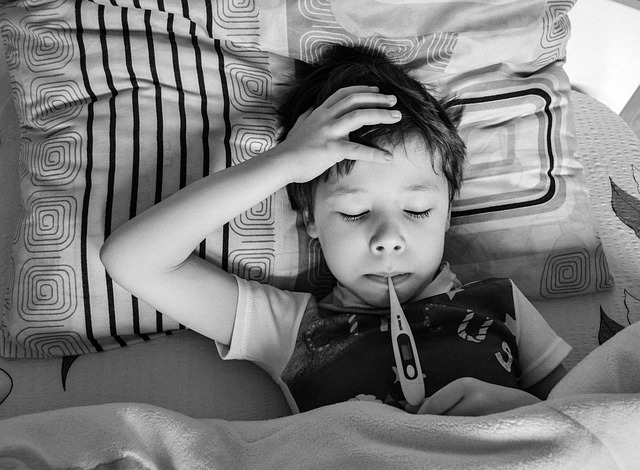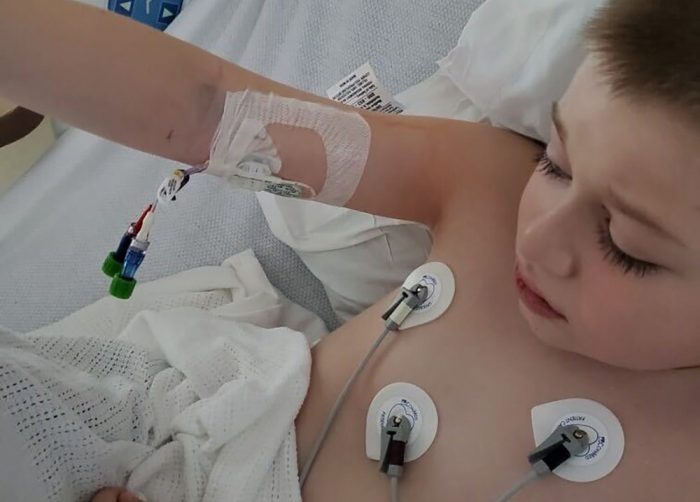The UAE was one of the many that were severely affected by the coronavirus pandemic. With the help of strong leadership and efficient medical officers and workers, Emirates are slowly returning to their normal lives.
However, now the news of a new disease among children is making the headlines. A top doctor in the capital city has cautioned parents about an unexplained hyperinflammatory syndrome in children.

Since the start of the pandemic, children were not seen suffering from severe forms of COVID-19 and they very rarely required intensive care. The latest report of this disease which was reported earlier in other countries like the US is worrying parents in the Emirates.
Described as Multisystem Inflammatory Syndrome in Children (MIS-C), this pediatric condition is presenting in children who have recovered from COVID-19, or been exposed to people suffering from COVID-19.
Dr Musaab Al Ramsi, division chief for the paediatric intensive care unit at Sheikh Khalifa Medical City (SKMC) said, “However, over the past few weeks, there have been numerous reports from Europe and the United States of otherwise healthy children presenting with MIS-C after being exposed to COVID-19 in the preceding month.”
Dr. Al Ramsi said the hospital has seen five children, aged between six and 12 years, with MIS-C in the last three weeks.
As the capital’s premier public hospital, SKMC has been treating patients with COVID-19 from the start of the outbreak.
The symptoms to look out for MIS-C includes:
- persistent high fever that is not adequately controlled with paracetamol
- congested eyes
- red and crackled lips
- skin rash
- nausea
- diarrhea
“If a child has any manifestation of these symptoms, they should be brought to the hospital for investigation and treatment. The sooner they are treated, the better the outcome will be. On the other hand, if there is a delay, children can develop fatal complications like coronary artery dilations and cardiac dysfunction,” Dr. Al Ramsi warned.
“Awareness is important so that children are brought to the hospital early for treatment and proper care,” Dr. Al Ramsi said.
“The fever lasts for more than three days and is higher than 39 degrees Celsius. In addition, the disease is presenting in children who have either had COVID-19 three to four weeks earlier, or been exposed to it in some way,” the doctor clarified.
Investigations via echocardiogram (ECG) showed that the children had cardiac symptoms and were suffering from low blood pressure. Doctors were able to confirm via antibody and serology tests that they had also had exposure to COVID-19 in the past month, he added.
“We immediately started treatment using a multidisciplinary approach, including intravenous immunoglobulin to confuse the immune system, corticosteroids to suppress the inflammation, and in severe cases, an immunomodulator named Anakinra. Some of the children also required mechanical ventilation and vasoactive medications due to shock and hypotension,” Dr Al Ramsi said.
Fortunately, all of the children after three to five days in paediatric intensive care, were transferred to the ward for further treatment.




![The Top & Most Popular Seafood Bucket Restaurants in Dubai for you [Never Miss]](https://uae24x7.com/wp-content/uploads/2020/09/8-seafood-in-a-bucket-scaled-e1600739237403.jpg)
![Procedures for Renewing the Driving License in Abu Dhabi [3 Simple Steps]](https://uae24x7.com/wp-content/uploads/2020/07/Capture-9-e1595666454466.jpg)





